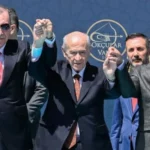The Gülen Movement, or Hizmet Movement, is at a critical juncture following the death of its founder, Fethullah Gülen. Nonetheless, despite this significant transformation, the movement is likely to disintegrate or diminish. Conversely, the inherent structure, principles, and worldwide impact that characterize the movement will facilitate its unity and fortification, both domestically in Turkey and on an international scale. Multiple critical factors ensure that the movement will not only survive but thrive in the absence of its founder, including the movement’s ideological foundation, its decentralized leadership structure, the existing vacuum in Turkish society, and diplomacy that could foster a revival of support.
1. A Strong Ideological Foundation that Transcends Leadership
The Gülen Movement is fundamentally based on a collection of profound values that surpass the personal leadership of Fethullah Gülen. The ideology of the movement is rooted in universal concepts such as education, altruism, interfaith dialogue, and social responsibility. Regardless of the current leadership, these principles resonate with millions of individuals worldwide. The movement attracts individuals from a variety of social, religious, and ethnic contexts by advocating for personal development through education and humanitarian service.
The Gülen Movement is fundamentally driven by its teachings, in contrast to movements that depend significantly on the personal charisma of an individual leader. Although Gülen was undeniably a pivotal actor in disseminating the movement’s message, its framework is designed to sustain itself independently of his direct participation. This intellectual fortitude guarantees that the movement will preserve its unity and continue to motivate its adherents long beyond his death.
2. Decentralized Structure Preventing Power Struggles
The Gülen Movement is unlikely to undergo internal cracks due to its decentralized structure. Leadership within the movement has never been centralized in the hands of an individual or a limited cohort. It functions via a network of institutions, encompassing schools, debate centres, and charities throughout more than 160 nations. This decentralization enables the movement to operate autonomously without any singular leader’s guidance, thus reducing the likelihood of power conflicts or internal schisms.
The Gülen Movement’s leadership is decentralized among multiple sectors, preventing any single party from dominating or undermining the movement’s objectives. The movement functions as a collaborative initiative, with numerous individuals and institutions advancing the teachings and values set forth by Gülen. This decentralized form ensures stability, rendering it less susceptible to the internal conflicts frequently encountered in movements characterized by centralized leadership.
3. A Global Network of Influence That Ensures Longevity
The Gülen Movement’s influence transcends Turkey, further indicating its improbability of disintegration. The movement has created a substantial global network of schools, debate centres, and charity organizations, despite a reduced presence worldwide. These institutions are regarded for their emphasis on academic quality, ethical leadership, and intercultural comprehension. Significantly, they do not rely on Gülen’s actual presence to operate efficiently. Rather, they function according to the ideals he advocated, enabling them to persist in flourishing without him.
The global character of the movement also shields it from the political realities in Turkey. The Turkish government has targeted institutions and persons linked with Gülen; nonetheless, the movement’s international presence has enabled it to endure and adapt. In numerous regions globally, Gülenist institutions and organizations are esteemed for their contributions to education and societal advancement. This favourable reputation enhances the movement’s sustainability and reduces the likelihood of fragmentation or deterioration over time.
4. Resilience Through Adversity
The Gülen Movement has exhibited tenacity under considerable hurdles, especially in Turkey, where the government has intensified repression against its members after the unsuccessful coup attempt of 2016. Notwithstanding these political persecutions, which resulted in the incarceration or exile of hundreds of Gülenists, the movement has not only endured but has also persisted in its endeavours worldwide.
Adversity has often fortified the determination of the movement’s adherents, reinforcing their allegiance to Gülen’s doctrines. The movement’s capacity to adapt and endure under challenging situations demonstrates its intrinsic resilience. This resilience will assist the movement in addressing the challenges arising from Gülen’s passing, ensuring its unity and placing emphasis on its fundamental purpose of education, service, and social responsibility.
5. The Vacuum in Turkish Society: An Opportunity for Resurgence
The Gülen Movement’s leadership is decentralized across multiple sectors, which prevents any single party from dominating or undermining the movement’s objectives. Various individuals and institutions are involved in the movement, which operates as a collaborative initiative to promote the teachings and values of Gülen. This decentralized structure guarantees stability, making it less susceptible to the internal conflicts that are frequently observed in movements that are characterized by centralized leadership. Following the removal of Gülenists, Turkey has witnessed a deterioration in social and institutional integrity, characterized by heightened corruption and diminished governance.
The degradation of values offers the movement a chance to reestablish itself as a positive influence in Turkey. As Turkish institutions persist in experiencing a decline in ethical leadership, the principles advocated by the Gülen Movement may gain increased significance, possibly resulting in a revival of support from both Turkish citizens and international observers. The movement’s focus on integrity, public service, and education can address the moral and ethical deficiency presently experienced in various sections of Turkish society.
6. Global Influence
The Gülen Movement, established by Turkish cleric Fethullah Gülen, was a prominent influence in Turkey and an essential element of the nation’s “smart power” internationally. Joseph Nye’s idea of smart power delineates the strategic amalgamation of hard power—military and economic prowess—with soft power, encompassing cultural, diplomatic, and ideological influence. The Gülen Movement exemplified this notion by enhancing Turkey’s soft power via education, diplomacy, and economic contributions, while indirectly bolstering the nation’s political and strategic objectives internationally. The movement served as Turkey’s principal source of smart power, significantly influencing Turkish authority domestically and globally.
The Gülen Movement’s influence extends beyond Turkey into significant regions such as the United States, Europe, Africa, and notably Central Asia. The movement’s worldwide educational institutions, debate centres, and commercial networks established a global footprint that bolstered Turkey’s reputation and influence internationally. These institutions, recognized for their superior education, imparted knowledge of the Turkish language and culture alongside disciplines including science, technology, and commerce, nurturing generations of students who subsequently ascended to influential roles in their respective nations.
In Central Asia and Africa, the movement’s educational institutions were essential in cultivating connections with the local population and prospective leaders. These schools facilitated a connection between Turkey and many regions by offering exceptional education to students from diverse backgrounds, enabling Turkey to extend its influence through educational and cultural diplomacy. This was especially crucial in geopolitically relevant regions like Central Asia, where competition from global powers such as Russia and China is intense. The graduates of these institutions frequently served as unofficial ambassadors for Turkey, facilitating the enhancement of diplomatic, economic, and political relations between their native nations and Ankara.
7. A Growing Need for Ethical Leadership and Education Worldwide
There is an increasing global desire for ethical leadership, quality education, and intercultural dialogue—domains in which the Gülen Movement excels. In numerous regions globally, educational access continues to be a challenge, and the movement’s institutions offer both academic distinction and a robust moral foundation for learners. By enabling individuals to become knowledgeable, principled leaders, the movement is poised to further extend its influence, particularly in areas where education is regarded as a means to social and economic advancement.
As global society places greater emphasis on intercultural communication, peace, and education, the principles of the Gülen Movement will persist in appealing to emerging generations of leaders and influencers. This guarantees that the movement’s impact will expand rather than wane, as an increasing number of individuals are attracted to its principles of collaboration, service, and harmonious cohabitation.
The Possibility of Reconciliation
Notwithstanding the existing tensions, historical evidence indicates that political climates can evolve, and over time, governments frequently reevaluate their associations with previously vilified groups. The accomplishments of the Gülen Movement, particularly in education and diplomacy, are indisputable.It is conceivable that Turkey would eventually recognize the strategic disadvantage it encountered by terminating its affiliation with the movement. The government may eventually recognize that the Gülen Movement’s soft power and global network were valuable to Turkey, both domestically and internationally.
In the future, as the political landscape evolves, a chance for reconciliation may arise. Recognizing the accomplishments of the Gülen Movement may manifest as an apology or, at the very least, a moderation of the Turkish government’s position. This action would indicate an acknowledgment that the movement, despite its contentious aspects, significantly contributed to advancing Turkey’s international influence and improving its reputation as a progressive, globally engaged country.
A New Era of Cooperation?
If Turkey opts to reconcile with the Gülen Movement, it may reinstate the movement’s operations, especially in education and dialogue, which were formerly integral to its soft power strategy. The reinstatement of Gülen-affiliated schools and institutions may enhance Turkey’s foreign standing, particularly in areas where these entities were regarded as exemplars of Turkish educational and cultural diplomatic excellence.
Furthermore, the movement’s focus on moderate Islam and interfaith engagement may facilitate the restoration of Turkey’s links with a wider international community. Through the promotion of peaceful coexistence and intercultural understanding, the Gülen Movement has the potential to operate as a conduit between Turkey and many global groups, mitigating the adverse perceptions that may have emerged during the political repression.
Conclusion: A Future of Unity and Strength
In summary, the Gülen Movement is strategically poised to maintain cohesion and strengthen in the years after Fethullah Gülen’s passing. His death does not signify the conclusion of the movement he established, but rather the perpetuation of a worldwide legacy that goes beyond his individual leadership. Its robust doctrinal underpinning, decentralized leadership framework, global presence, and demonstrated resilience render it exceedingly improbable to encounter internal schisms or disintegration. The movement is prepared to persist in its objective of advancing education, ethical leadership, and intercultural comprehension, both domestically in Turkey and internationally. The principles that have upheld the movement for decades will persist in guiding it, guaranteeing that its impact remains long beyond Gülen’s death.
Ultimately, Turkey will inevitably lament the forfeiture of the movement’s contributions to its “smart power” on the global arena and acknowledge the influence it previously exerted in cultivating Turkey’s favourable international reputation. An apology or a reinstatement of the movement’s activities might signify the commencement of a new era of collaboration, wherein the principles of education, dialogue, and service are once more prioritized in Turkey’s domestic and foreign strategy.
By: NAT Editorial Team



